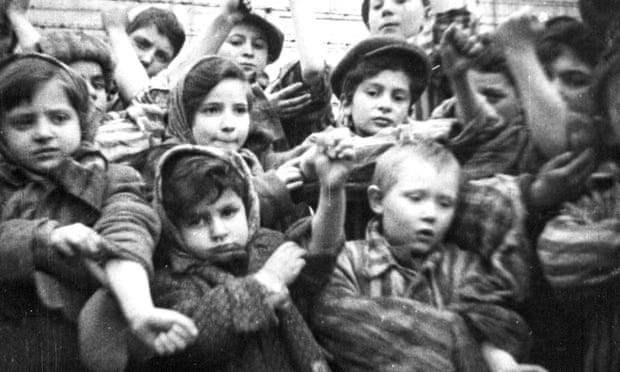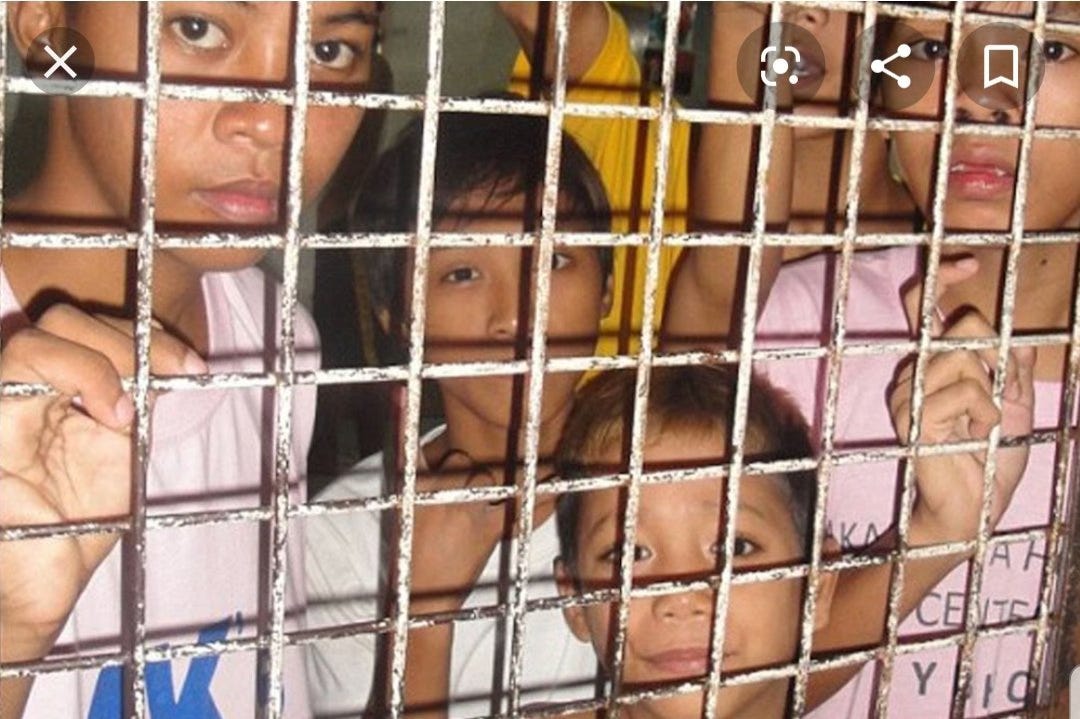This wasn't just another blip on the media radar; the October 7th Hamas attack on Israel was a seismic jolt in the Jewish saga of survival. In the eye of this storm, the line between observer and participant blurred, each of us unwittingly drafted into the narrative, a witness to history that refused to be muted or forgotten.
In the days that followed, online media coverage was among the most disturbing I have ever seen. The images of children suffering sickened me. The notion of innocent women facing brutal violence was incredibly hard to procxess.
I stand solid with Israel's right to plant its flag and exist. But I’m walking a tightrope - admiring a nation but throwing shade at its puppet master, Benjamin Netanyahu. His Palestinian playbook is a minefield, a human rights disaster.
Netanyahu has led Israel for sixteen years and he's indeed earned his moniker 'Israeli Trump' for his political maneuvers. Israeli politics, notoriously complex, has made governing without a clear majority an arduous task. It's often joked that if you put three Jews in a room, you'll end up with five different opinions, highlighting the challenges of managing a coalition government.
Legal disputes have also ensnared Netanyahu, akin to various other world leaders with questionable moral integrity. Netanyahu’s government has been accused of not addressing early warnings in the weeks before the attack. This oversight has contributed to his already waning popularity. Once the current crises are resolved with the release of all of the hostages, a new leader will emerge to tackle an incredibly challenging situation with no easy answers. Eventually, Netanyahu will have to answer for his crimes against humanity.
His tenure has repeatedly been marked by a hardline stance, especially in his dealings with Palestinians, treating them with inhumane disdain. For Netanyahu, Palestinians are savages who can been herded like sheep and denied basic human rights. Most Palestinians aren’t terrorists, they’re ordinary people struggling to survive under consistently brutal conditions. Whether this is a deep-seated belief for Netanyahu, or a tactic in a power play, under his leadership the prospect of a two-state solution remains distant.
Israel was born into a world of chaos on May 14, 1948. Since its first breath, it's been a boxer in the ring, duking it out with neighbors and factions. The latest antagonist, Hamas, has emerged from Gaza a formidable and relentless adversary. They aren’t just throwing stones, they launch rockets and brew storms, utilizing vast and complex tunnels beneath Gaza. Their actions toward innocent women and children serve as a grim reminder that the Holocaust was not an isolated incident.
Meanwhile, Hezbollah is the shadow lurking on Israel's other side, the political party with 'The Party of God' as their tagline, supported by Iran. They target Israelis and Jews far and wide, not just in Lebanon, but across the globe, adding fuel to Israel's fire of insecurity.
Every hour of nearly every day, missiles and now drones, rain down on Israel's northern borders, a never-ending storm. Imagine, just for a second, living with that kind of thunder over your head 24/7. It's a world where the sky isn't just blue; it's lined with the iron color of fear and survival.
The Gaza Strip has been the stage for a forty-year drama between Israel and the Palestinians. It’s a Kafkaesque nightmare of denied building permits and homes getting smashed to dust. For the Palestinians, it's a daily grind of rights being trampled and dreams getting bulldozed.
Today, the Israeli-Palestinian conflict is splashed all over the internet like a Jackson Pollock painting. It's a dizzying swirl of misinformation and half-truths, lighting up American college campuses with tension and confusion.
Young people are not thumbing through the New York Times or tuning into CNN. They're diving headfirst into the social media cesspool - Facebook, Instagram and TikTok, at the top of the food chain.
But here's the rub: social media is like the Wild West of information. It's raw, uncut, user-generated madness. And what's brewing in this cauldron? A nasty stew of anti-Semitic sludge, along with a myriad of toxic misinformation. Pandora's box is open and all the internet's demons have come flying out.
The big question hanging over this digital playground is just how cozy TikTok is with the Chinese government, where the site was founded. In Xi Jinping’s dream world, Israel's a memory, a blip on the radar of history.
What Can I Do?
I'm a cultural Jew, not the synagogue-hopping kind, but more like a jazz musician riffing on the Jewish theme. Although I’m a spiritual man, organized religion is not my jam. But the culture – the language, history, values, customs, and those traditions with that unique Jewish flavor? That's my groove. Jewish food, humor, history, and community – that's where my heart beats.
My folks were warriors of the Depression and World War II era. They started off in Hartford, Connecticut's Jewish ghetto. Post-war, it was all about the suburban dream in West Hartford, but no synagogue scene for us. Mom had this idea – talking to the Big Guy shouldn't cost a dime, let alone a swipe of a credit card.
My family heritage is deeply woven with tales from "the old country," spanning Ukraine, Saint Petersburg and Kyiv. My forebears were musicians in the Czar's court and tailors with their own unique tales. They fled to America to escape the Cossacks and pogroms, where being Jewish was a mark for persecution. And now, to my great disgust, in the recent decade, history is repeating itself. Jew are indeed, targets.
As a kid, the Holocaust was a dark cloud I couldn't wrap my head around, even though my family dodged that bullet. Cut to my NYU Film School days – a book that rocked my world, "Child of the Century" by Ben Hecht. Hecht, a maestro of the silver screen, a wizard with words, an icon in the Hollywood scene, opened my eyes to a world I never knew, all through the lens of his own crazy, brilliant life.
Dive into the work of Ben Hecht, and you're not just meeting a Hollywood legend, you're crashing into an activist powerhouse. This guy wasn't just about scripts and spotlights; he was outspoken when his Hollywood bosses told him to keep his to keep his mouth shut, a frontline warrior for Jewish causes. During the darkest days of World War II, while the Holocaust was devouring lives, Hecht was out there, a loudspeaker for the unheard, rallying all possible forces to stop the massacre, and for the creation of a Jewish state in Palestine.
I was clueless about the depth of America's blind eye to the Holocaust until I read Hecht’s autobiography. Anti-Semitism in America before and during World War 2, was an immigration issue. The few Jews who escaped the European massacre couldn’t get anywhere near America.
After reading the book, I dug through the archives, hunting down the ghosts of those untold stories. My mission? To bring Hecht's battle for the Jews to life, on stage. "The Pariah,"was the play I wrote that spilled this untold drama onto the boards of a tiny theater in Westchester, New York.
Ben Hecht spoke the truth, no matter the cost. Eventually his writing on behalf on the Jews cost him his career as a screenwriter. He went from being one of the highest paid screenwriters in Hollywood in 1939, to a man who couldn’t put his name on a film in 1949.
My deep dive into his world eventually uncovered three of the original members from "The Committee," Hecht's wartime crew, the guys who hustled their hearts out to save Jewish lives, In the 80s, they were still alive and kicking. After the war, they became the Irgun, who used any means necessary to wrestle Palestine from the British.
I found them all in New York: Peter Bergson, Samuel Merlin, Yitsaq Ben-Ami, by then in their 80s. Picture this: sitting across from these giants, Hebrew revolutionaries, who stood shoulder to shoulder with Hecht in the darkest hours. I touched history. They weren’t just old men, they were living, breathing chapters of a story so wild, so raw, it beat any Hollywood script.
In 2018, the Tree of Life Massacre in Pittsburgh was a wake-up call. It was a slap in the face, a brutal reminder that the ugly head of anti-Semitism was rearing again. I couldn't just sit back; I had to do something. So, I grabbed my camera and dived into the making of 'They Will Not Replace Us,' a documentary to expose the festering wound of anti-Semitism in America.
Living in Tucson, I stumbled upon a goldmine – a community of Holocaust survivors, each a living testament to history's darkest chapter. They became the soul of my film. Reading about the Holocaust is one thing; it's words on a page. But sitting face-to-face with those who lived it, whose eyes bore witness to the unspeakable, capturing their stories on camera? That's a whole different ball game.
Here's an excerpt from my documentary, shining a spotlight on Ben Hecht and his remarkable band of brothers. Their story isn't just history; it's a beacon, a warning, a lesson that we're still trying to learn.
Repairing the World
"Tikkun Olam" is a concept in Judaism meaning "repairing or healing the world.” It refers to the idea that individuals have a responsibility to fix what is wrong in the world. The concept has its roots in early Rabbinic Judaism but has evolved over time to encompass a broader range of social action and social justice issues. In modern times, it is often associated with the pursuit of social justice and humanitarian aid, reflecting the ethical and moral responsibility to improve and repair the world through human actions.
This sense of purpose has tugged at me since I was a kid. I've always felt an inherent duty to do something meaningful in this world. Now, in the later stages of my life, this feeling is stronger than ever. The world I once knew is vanishing, every day I see humanity faltering.








We come from similiar backgrounds: maternal grandparents from Ukraine and fraternal grandparents from Poland. They all arrived in 1906, when New York City was being terrorised by the Black Hand. They had a few relatives in Chicago and went there. My only direct experience with anti-semitism was as a schoolboy in Chicago at the age of 9. I was walking home from school, down an alley shortcut, and at the end of the alley were 3 boys, one of whom yelled, "There's a Jew, let's get him." I ran for my life and escaped them. I now live in Thailand and being a Jew is irrelevant. My stepdaughter asked me, "What is a Jew?" I still can't answer that question. All I know is that because my mother was Jewish, I'm Jewish and have inherited thousands of years of develpment and although I have never been to a Synagogue or had a Bar Miztvah, I'm still Jewish.
Bravo! Well said and thank you for doing so. Props to Rabbi Cohon, an excellent storyteller.